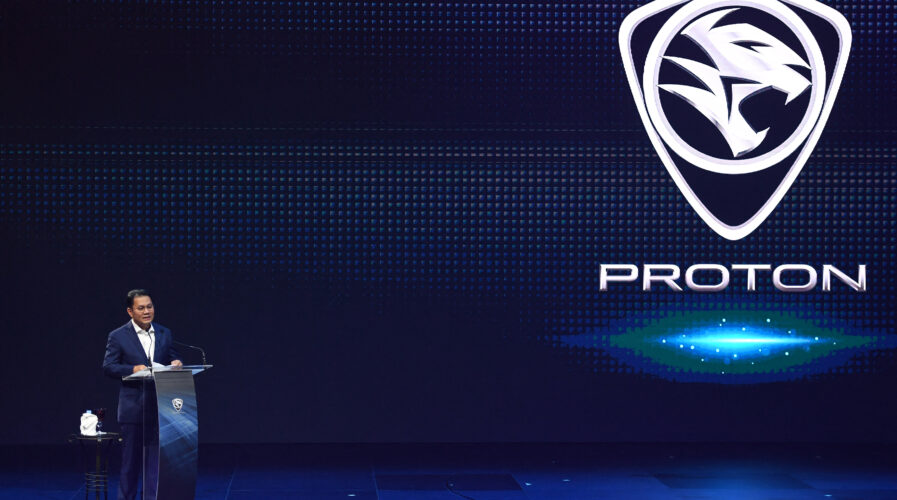
Smart electric vehicles by Mercedes-Geely are coming to Malaysia, Thailand. (Photo by Mohd RASFAN / AFP)
Smart electric vehicles by Mercedes-Geely are coming to Malaysia, Thailand
- The move marks Malaysia’s national car company’s first step in the local EV market.
- The smart electric vehicles to be distributed in Malaysia will be engineered by Geely with Mercedes in charge of the design.
When it comes to adoption of electric vehicles (EVs), Malaysia has been pretty slow in the race as opposed to its regional peers. Things however began to look better when the country’s government announced a full tax exemption for EVs that will last until the end of 2023. Besides having more-than-usual Tesla orders and a future lineup of Toyota’s hybrid car, now Malaysia will soon have Mercedes-Benz AG and Zhejiang Geely Holding Group selling their smart EVs too.
Basically, Malaysian automotive company Proton has secured a distributorship agreement with Smart Automobile, the joint venture between Mercedes and Geely, to import their new range of electric vehicles into not just Malaysia but also Thailand. The move also marks Malaysia’s national car company’s first step in the local EV market.
The smart electric vehicles, according to a local media report, will be engineered by Geely with Mercedes in charge of the design. The manufacturing process will be done in a purpose-built factory in Xi’an, some 1,400 km away from smart’s new headquarters in Hangzhou Bay.
According to Proton’s statement, the carmaker’s distribution arm will be appointed importer, distributor and dealer for the smart brand in Malaysia and Thailand, while smart Automobile (Nanning) Sales will hold the role of the EV brand’s gateway to this region.
Although Proton has yet to reveal a timeline for the introduction of the smart brand, experts reckon that it could arrive in Malaysia soon after the release by Mercedes and Geely, to take full advantage of the lucrative tax exemption. Separately, Proton’s CEO has also told local media outlets that the company also has plans to introduce hybrids (HEV) and plug-in hybrids (PHEV), besides electric vehicles.
Electric vehicles in Malaysia and its infrastructures–or the lack of it
As of August 2021, there are about 500 public AC charging stations in Malaysia and only nine public DC fast-charging stations for EVs, with another 10 in development. For context, Thailand, which has more than double Malaysia’s population, has 1,406 public AC charging stations, and 771 public DC fast-charging stations.
Compared to their smaller island neighbor, Singapore has 61 DC fast-charging stations. Having lagged behind its regional peers, Malaysia Automotive Robotics and IoT Institute (MARii) and the Malay Vehicle Importers and Traders Association of Malaysia (PEKEMA) decided to ink a memorandum of agreement (MoA) towards the development of more EV infrastructure in the country.
Both parties aim to collaborate on setting up a network of 1,000 DC rapid charging stations around Malaysia by 2025. They will also co-develop connected aspects such as e-payment, charger locators, battery management systems as well as service center networks for the charging ecosystem.
DC charging points are faster, with an hour to fully charge a car, as compared to AC charging points that take about eight hours for a full charge. That means to get to 1,000 in 2025, Pekema and MARii will have to build 981 DC Fast Charging Stations within three years.
READ MORE
- Data Strategies That Dictate Legacy Overhaul Methods for Established Banks
- Securing Data: A Guide to Navigating Australian Privacy Regulations
- Ethical Threads: Transforming Fashion with Trust and Transparency
- Top 5 Drivers Shaping IT Budgets This Financial Year
- Beyond Connectivity: How Wireless Site Surveys Enhance Tomorrow’s Business Network


